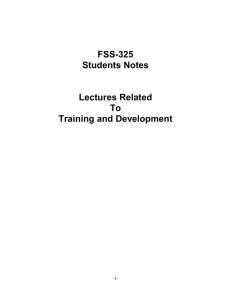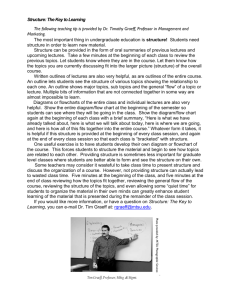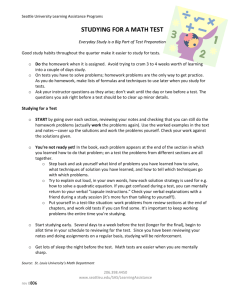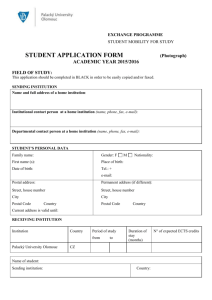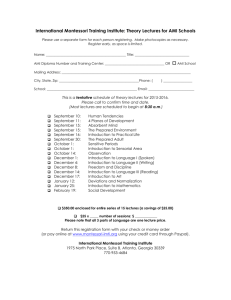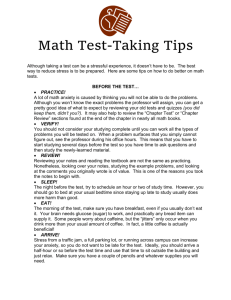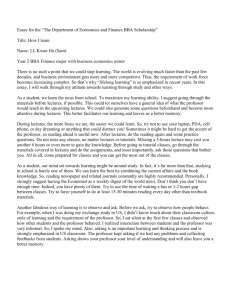Studying for the Sciences
advertisement
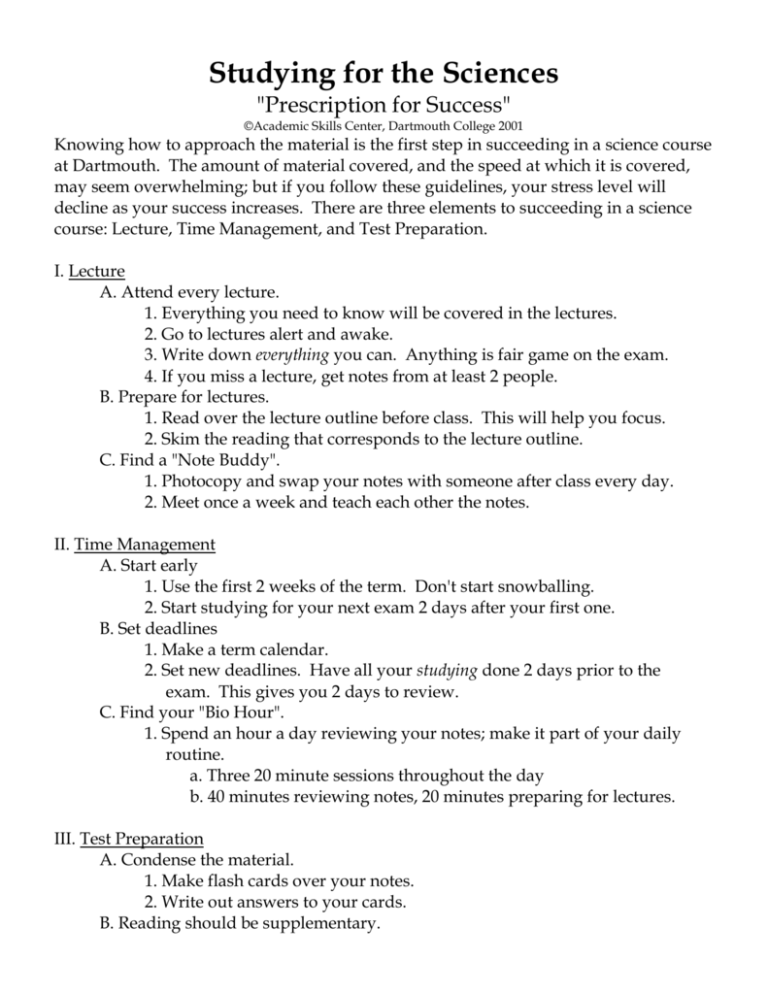
Studying for the Sciences "Prescription for Success" ©Academic Skills Center, Dartmouth College 2001 Knowing how to approach the material is the first step in succeeding in a science course at Dartmouth. The amount of material covered, and the speed at which it is covered, may seem overwhelming; but if you follow these guidelines, your stress level will decline as your success increases. There are three elements to succeeding in a science course: Lecture, Time Management, and Test Preparation. I. Lecture A. Attend every lecture. 1. Everything you need to know will be covered in the lectures. 2. Go to lectures alert and awake. 3. Write down everything you can. Anything is fair game on the exam. 4. If you miss a lecture, get notes from at least 2 people. B. Prepare for lectures. 1. Read over the lecture outline before class. This will help you focus. 2. Skim the reading that corresponds to the lecture outline. C. Find a "Note Buddy". 1. Photocopy and swap your notes with someone after class every day. 2. Meet once a week and teach each other the notes. II. Time Management A. Start early 1. Use the first 2 weeks of the term. Don't start snowballing. 2. Start studying for your next exam 2 days after your first one. B. Set deadlines 1. Make a term calendar. 2. Set new deadlines. Have all your studying done 2 days prior to the exam. This gives you 2 days to review. C. Find your "Bio Hour". 1. Spend an hour a day reviewing your notes; make it part of your daily routine. a. Three 20 minute sessions throughout the day b. 40 minutes reviewing notes, 20 minutes preparing for lectures. III. Test Preparation A. Condense the material. 1. Make flash cards over your notes. 2. Write out answers to your cards. B. Reading should be supplementary. 1. Use the reading to supplement all concepts covered in class. 2. Know all the figures that relate to the lecture. C. Apply the material. 1. As you study, think of applications of the material. 2. Use old exams as guides to applying the material.
